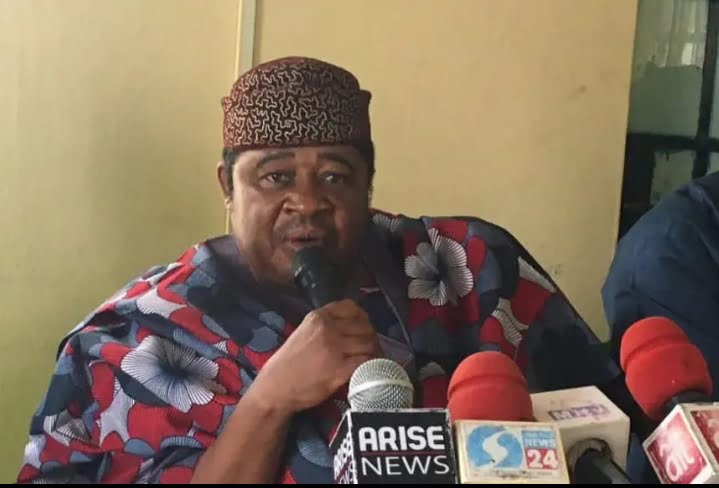In the mindset of those whose minds have been colonised by RELIGION, a statue is an IDOL.
To them, the statue of ÒGÚN LÁKÁAYÉ built by the people of Ire Ekiti, Ekiti State, is an idol.
And because of this mindset, the Ekiti State Commissioner for Culture, Prof Rasak Ojo Bakare, avoided mentioning the name ÒGÚN while commissioning the statue in Ire Ekiti.
Instead, he said; “A sí asọ lójú u bàbá a wa, ẹni ìrántí tó wà níbí, lórúkọ baba, ọmọ, àti ẹ̀mí mímọ́ (We unveil the statue of our father, a memorable person that is here, in the name of the Father, Son and Holy Spirit).
What’s wrong in Prof Ojo Bakare saying “A sí asọ lójú u bàbá a wa, ẹni ìrántí, Ògún Onírè, Ògún Lákáayé Ọsìnmọlẹ̀ lórúkọ Olódùmarè (We unveil the statue of our father, a memorable person, Ogun Lakaaye in the name of God)?
Prof Ojo Bakare chose to avoid mentioning the name ÒGÚN while unveiling the statue because in his mindset, he didn’t want to mention the name of an idol.
Meanwhile, part of the dictionary meaning of IDOL is “a person or thing that is greatly admired, loved, or revered.” For example, a soccer idol, a music idol, etc.
Funny enough, this same Prof Ojo Bakare, started his career in the film industry as a film apprentice under Jimoh Aliu and Chief Hubert Ogunde. He featured in ” Aropin N’Teniyan ” a celluloid film by Hubert Ogunde, in 1981/82. He graduated with BA (Hons) in Theater Arts.
I am sure you and I know how it was, acting movies under Jimoh Aliu and Hubert Ogunde in those days. No one could have done that without mentioning Ògún, Sàngó, Ọya, etc. No one could have studied Theater Arts too without singing “Ifá o jí ire Ọ̀rúnmìlà o jí ire…”
So how is a statue of Ògún, built by the people of Ire Ekiti that he (Ògún) is proudly associated with as Ògún Onírè, an idol?
For instance, if I build the statue of my father, has he become an idol?
If I build the statue of my mother, will I not be bold and proud to mention her name and eulogize her while unveiling the statue because she has become an idol?
Does putting the statue of Mary, the mother of Jesus Christ, in a Catholic Church make her an idol?
To me, Ògún Onírè, Ògún Lákáayé Ọsìnmọlẹ̀, was never an idol and he has not become an idol simply because his statue was made in Ire Ekiti. Rather, he is one of the ancestors of the Yoruba people just as Abraham or Ibrahim is to the Jews and Arabs.
Also, in the context of the Yoruba people’s worship of Olodumare, Ògún is a prophet.
Therefore, it is religious hypocrisy taken to the extreme for a commissioner of culture to act the way Prof Ojo Bakare acted in Ire Ekiti and like I have said, if he feels too religious to associate with the culture and tradition of the people of Ekiti, he should resign.
Lere Olayinka lives with the Irunmales of Oke Agbonna in Okemesi Ekiti










